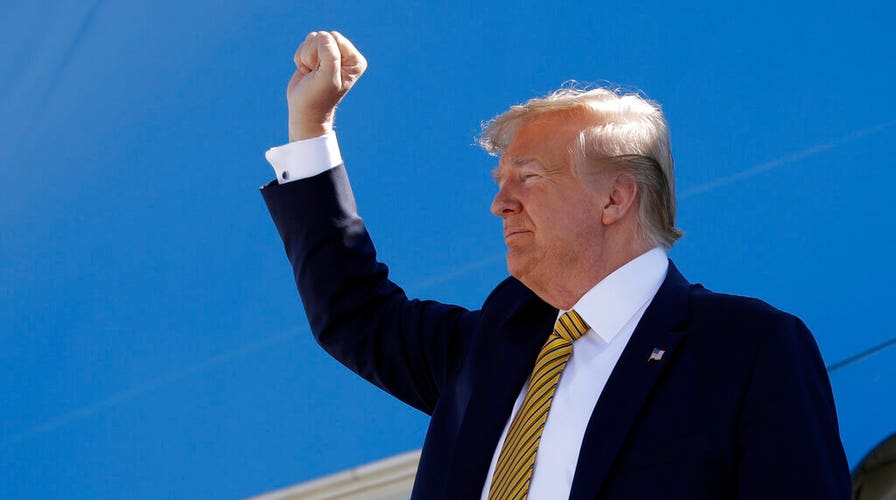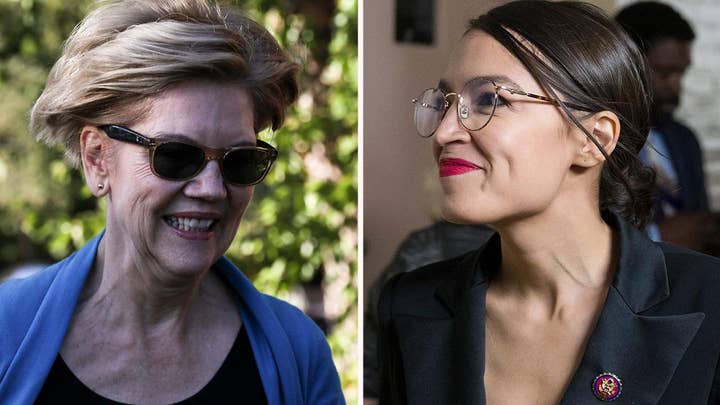Fox News Flash top headlines for Oct. 4
Fox News Flash top headlines for Oct. 4 are here. Check out what's clicking on Foxnews.com
President Trump issued a proclamation Friday requiring immigrants applying for U.S. visas to prove they can afford health care.
Applicants will be denied entry into the U.S. unless they have plans to be covered by health insurance within 30 days of entering or have enough financial resources to cover the cost, according to the White House.
The measure would take effect Nov. 3 and will apply to applicants for visas from abroad. It will not be applied retroactively to those already in the U.S. It does not affect lawful permanent residents, nor does it apply to asylum seekers, refugees or children. However, it would apply to the spouses and parents of U.S. citizens.
“Hospitals and other providers often administer care to the uninsured without any hope of receiving reimbursement from them,” the White House explained. “The costs associated with this care are passed on to the American people in the form of higher taxes, higher premiums, and higher fees for medical services ... The United States has a long history of welcoming immigrants who come lawfully in search of brighter futures. We must continue that tradition while also addressing the challenges facing our healthcare system, including protecting both it and the American taxpayer from the burdens of uncompensated care."
TOP WARREN CAMPAIGN OFFICIAL FIRED FOR 'INAPPROPRIATE BEHAVIOR'
Hospitals have spent more than $35 billion, or an average of $7 million per hospital, on “unreimbursed services” over the last 10 years, according to the White House.
“Beyond imposing higher costs on hospitals and other healthcare infrastructure, uninsured individuals often use emergency rooms to seek remedies for a variety of non-emergency conditions, causing overcrowding and delays for those who truly need emergency services,” the White House added.
Under the proposed rule, the required insurance can be purchased individually or provided by an employer, and it can be short-term coverage or catastrophic. Medicaid doesn't count. And an immigrant will not be able to obtain a visa if using ObamaCare subsidies when buying insurance.
BERNIE SANDERS RELEASED FROM HOSPITAL, DOCTORS SAY HE SUFFERED A HEART ATTACK
According to the Migration Policy Institute, a nonpartisan immigration think tank, 57 percent of U.S. immigrants had private health insurance in 2017, compared with 69 percent of U.S.-born, and 30 percent had public health insurance coverage, compared with 36 percent of native-born. The institute also said the uninsured rate for immigrants dropped from 32 percent to 20 percent between 2013 to 2017.
Earlier this year the Trump administration issued a “public charge rule,” which will go into effect Oct. 15, allowing federal officials to deny green cards to applicants deemed likely to rely on government aid. Officials described the rule as a means to protect taxpayers and promote self-sufficiency among those granted permanent residence. Factors to be considered under the “public charge rule” are age, health, financial assets and education.
The White House also directed officials to recover income-based welfare payments from sponsors and proposed a rule requiring verification of immigration status for anyone seeking access to public housing benefits.
CLICK HERE FOR THE ALL-NEW FOXBUSINESS.COM
The new restrictions came as immigration and health care are at the forefront of the 2020 presidential race. Democratic candidates have repeatedly decried Trump’s strict immigration policies and most have touted "Medicare-for-All" or at the very least a public option for health care. Most have even taken it a step further and supported providing health care for undocumented immigrants. Trump mocked Democrats on Twitter who supported the idea at a Democratic primary debate in June.
“All Democrats just raised their hands for giving millions of illegal aliens unlimited healthcare,” Trump tweeted. “How about taking care of American Citizens first!? That’s the end of that race!”
The Associated Press contributed to this report.







